Malian Musician Fatoumata Diawara Defends Her Truth
Fatoumata Diawara opens up about Wassoulou culture, experimenting with electric sounds, and her Grammy-nominated album, Fenfo.
This interview originally appeared in She Shreds Magazine Issue #18, released August 2019.
Fatoumata Diawara finds inspiration through honesty: “For me, the best way to write is to close my eyes, think about my life, and defend my truth,” she explains, speaking from her home in Paris. “It’s always about the truth, always about being yourself, and having no fear to share your own experiences.”
Over the last 10 years, the Malian singer-songwriter has woven her stories into stark songs that blend traditional Malian rhythms and inventive guitar melodies. And each of her releases contains traces of her personal history. Diawara was born in the Ivory Coast to Malian parents. As a teenager, she was sent to live with an aunt who worked as an actress, leading Diawara to eventually break into the world of cinema. In between films, she began composing her own music, writing out personal reflections in the Malian language of Wassoulou, and setting them to song.
In her rich, soulful voice, Diawara has shed light on everything from adoption to motherhood to female mutilation. Her most recent album, the Grammy-nominated Fenfo, was released by Shanachie Records in 2018. Its title translates to “Something To Say,” and its songs feature experimentation with swatches of electric guitar and modern instrumentation. Like Diawara herself, it is bold and unafraid.
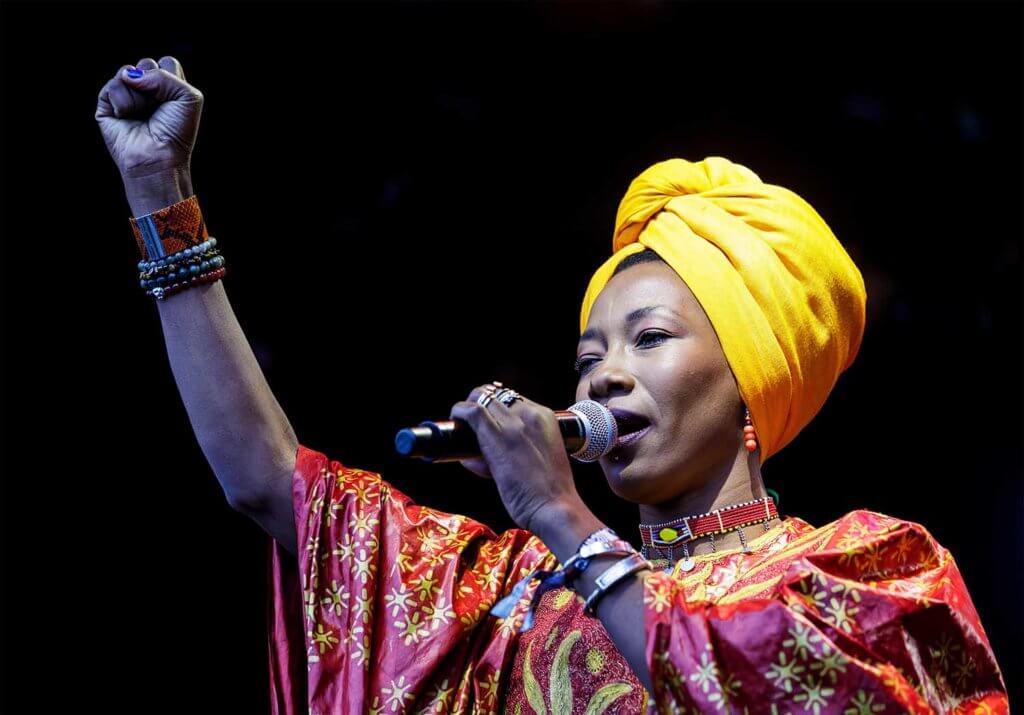
You were working as an actress when you first began writing music. What led you to pick up the guitar?
It was the commodity of it, the fact that you can take it everywhere and it’s easy to transport. It can be [like a] best friend to a human being. In Mali, we use a lot of guitar in our music—we have a lot of traditional instruments similar to guitars—so to me, it was one of the best instruments. The first one I got, I think, was a Martin.
I read that you started playing guitar after a musician who performed with you cancelled right before a concert.
It’s true. I started writing songs first—it wasn’t my idea to play an instrument, because in Mali, that’s not common. Women normally don’t play instruments. You don’t grow up to be something like this. But I was too dependent on other people when I began performing, and I don’t like that. I like to be independent, if I can. It was becoming necessary to play and perform without a band. The best way was having an instrument, piano or guitar, because I was always giving up my shows when the guitar player or the drummer couldn’t come. All of my music was composed by guitar, so I realized that if I wanted to do something my way and I wanted to go far and be independent, it was better to learn how to play the instrument. I went to the market, bought a book, and began learning… It’s a freedom that’s really necessary in the music industry.
You mostly started with an acoustic guitar and later—especially on your album Fenfo—you began experimenting with more electric sounds. What led you to move into this new territory?
I like what the acoustic guitar gives you because it’s more melancholic in a way, and you quickly catch the emotions behind the music. That’s why on this tour I’m very interested in writing with an acoustic guitar—it’s a Martin that I really like. But onstage, I like the electric guitar, especially because it’s not always often that women play electric guitar… And now I’m doing small solos onstage. But in the studio, I always like to take my acoustic guitar. It’s a very emotional thing; all the songs are composed with acoustic guitar. And then maybe the second guitar is electric when I record.
How do electric guitars change or enhance traditional Malian elements that appear in your music?
Malian people are used to playing the guitar as a traditional instrument because we have a lot of traditional instruments that are similar—the n’goni, the kora. Once you can play some of those, you are easily able to play a guitar. But most of the time, the traditional instruments are very spiritual. So, for example, when you have your period, you cannot play some of [the traditional instruments] and it makes things more complicated for women. It’s changing quite a lot now, but I think that’s part of the reason why we didn’t grow up seeing women playing those traditional instruments—it was usually about being good singers. Many people don’t have the same experience, of course, but in Mali, we don’t see many [women] artists playing an instrument. We never go on the harder side, making solos and being more involved.
[In Mali], we also don’t learn the same way to play music. It’s totally different, and we start a lot from the blues. I cannot read music and I cannot write music [in normal ways], but I feel the music. I don’t know what the normal way is, really, and that’s something my piano player [Arecio Smith], who is a teacher, always says to me. He tells me that I have a very big sensitivity with music, even more than him. And every time I tell him, “But I have to learn and I have to read the music,” he always says, “Don’t do that.” For him, it’s better for me to have my instincts and my relationship with music. It’s very physical. I react very physically.
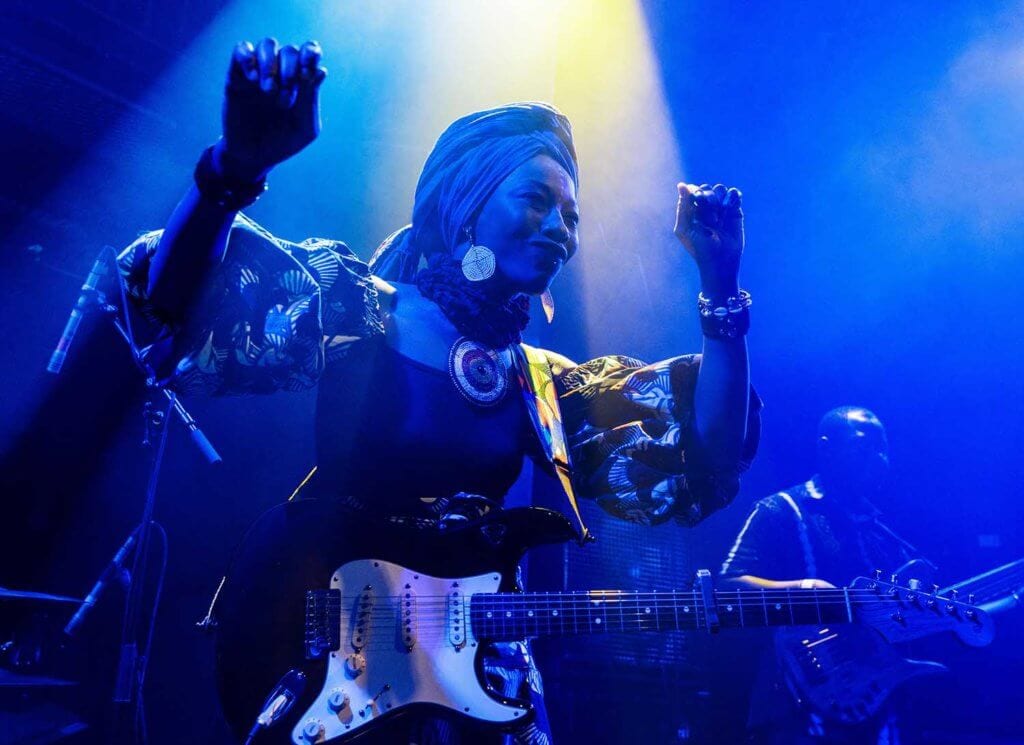
You’ve played with a number of renowned guitarists from around the world, including Paul McCartney, Amadou Bagayoko, and Sam Dickey. How has your experience of collaborating with Western musicians differed from your collaborations with musicians from Mali or Africa?
That’s quite complicated. There are no boundaries. There is something very strange about music that might be why people say it’s an international language. The fact is that we all have a heartbeat, and to your heartbeat you can set any type of music. We can collaborate together—jazz to traditional Malian music to Indian music—but there is a point that we all find in each other, once you get the boom. And once you get that, you make the connection. From there, there is no type of music. Once I’ve told myself I found the right moment, it becomes easy to find the heartbeat and the soul of the music.
Wassoulou culture is known for “songs of advice,” in which women singers educate other girls through music. How does this aspect of Wassoulou culture play a role in your own music? How have your messages or “songs of advice” changed since you’ve become a mother?
In our society in Mali, this is something that is very common. I’ve been standing by my own story, which has a very strange background, so I don’t need to go very far away when I’m writing music. I just have to close my eyes and open one door from my brain and I can make a story, add a melody, and make a song. So, through that, as a Malian woman, I can reach many subjects from my society naturally. If it’s female mutilation, I can talk about that because I’ve been mutilated. I wrote a song about adoption because I’ve been adopted. If I’m talking about my own story, I will hopefully touch many women. I’m writing my songs to my truth. Everything started from my own story.
The visual elements of your music are incredibly bright, colorful, and sometimes even futuristic. How do you come up with these visual concepts? How do the images help reveal the messages in your music?
It depends on the moment. I’m very connected with myself most of the time, and I’m very fast when I have to select what I want. When we are about to create music or videos, my manager or people that I’m working with will sometimes propose things to me and I very quickly tell them what I want. Nothing is prepared before. Everything is very instinctive with me, and that’s how I’m working with my images. It comes from the feeling I have at the moment.
You’re in Paris right now with your son. Are you working on music while you’re with him, or do you like to space out time to focus on writing?
I like to do everything together. It doesn’t matter if I’m a mom or not. I’m always busy working. [For] the next album, we already have a lot of stuff, and I’m excited, so we’re going to just keep working.
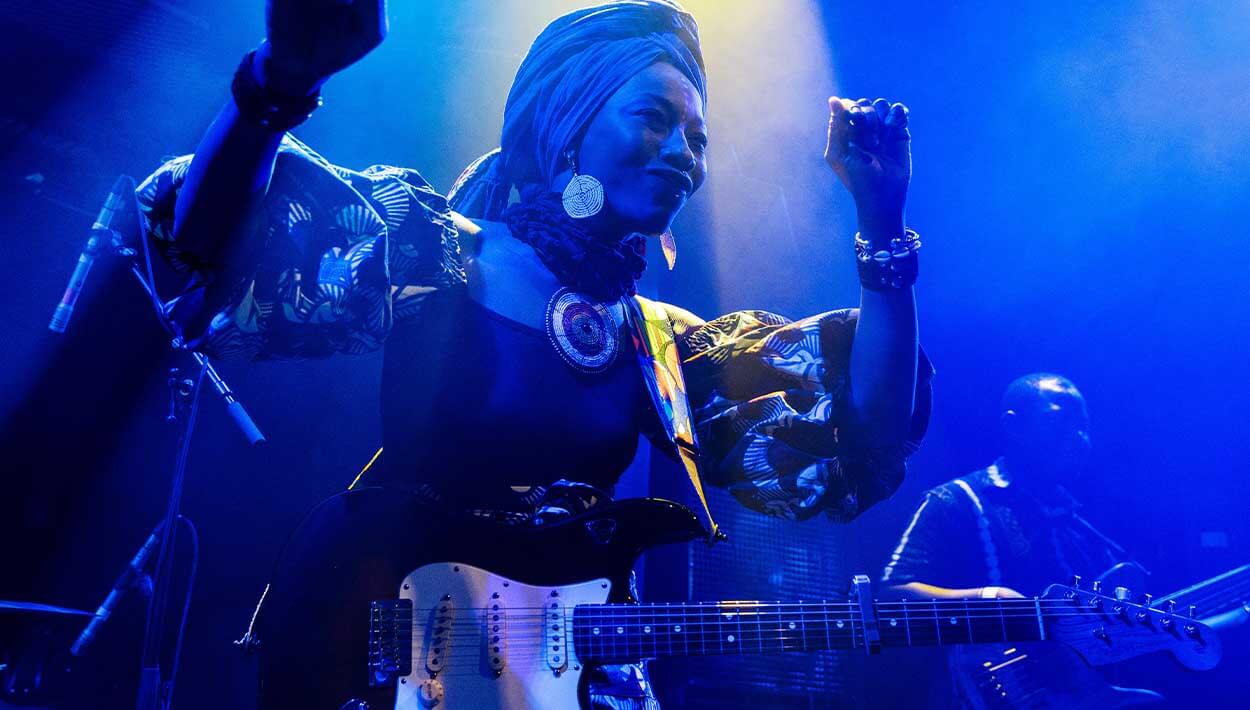

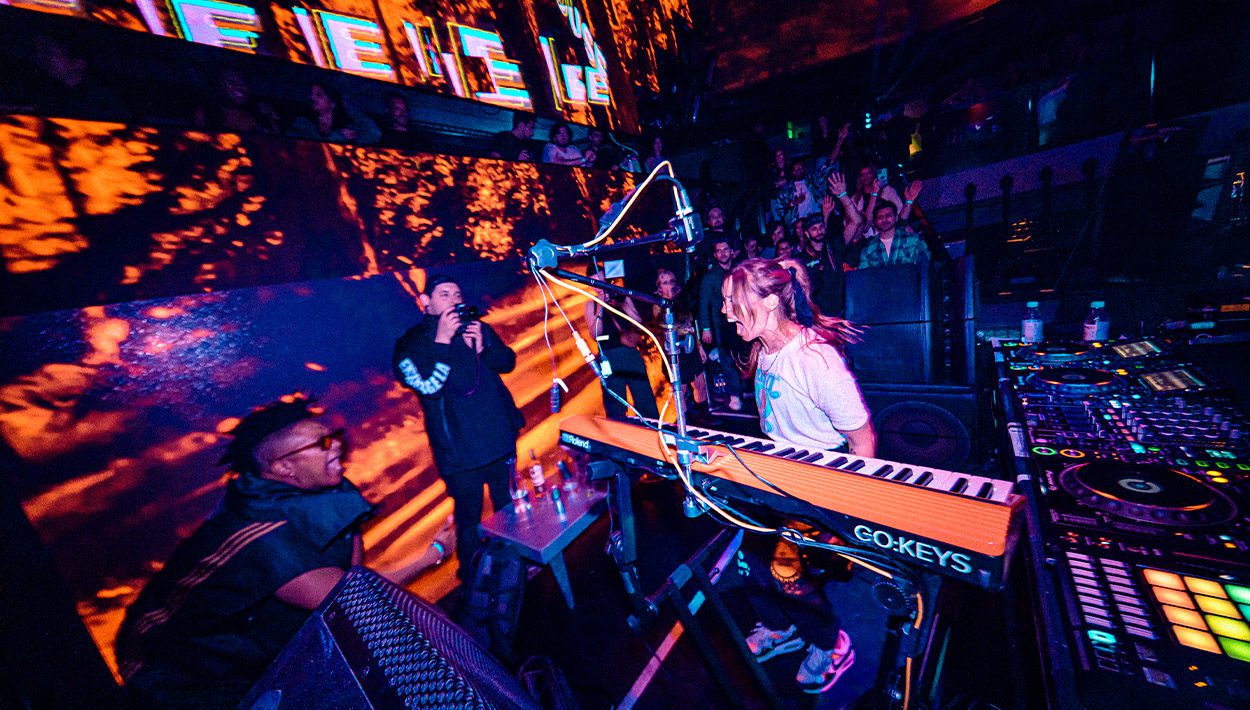
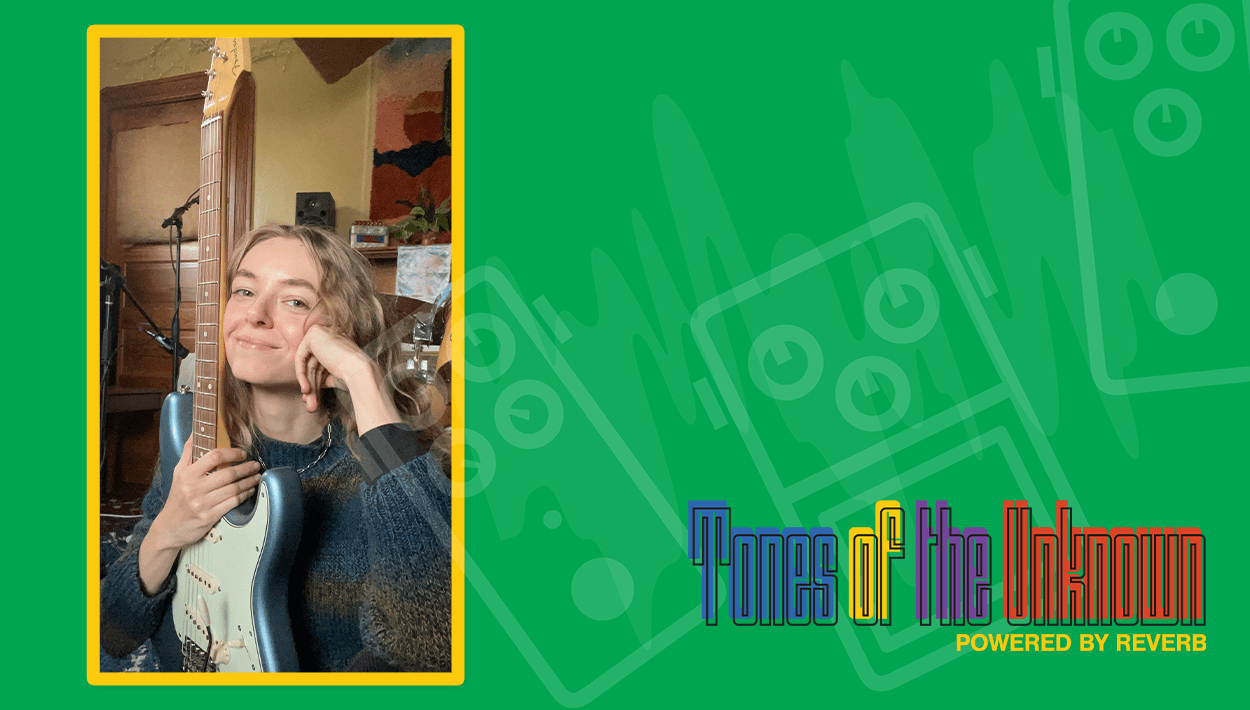
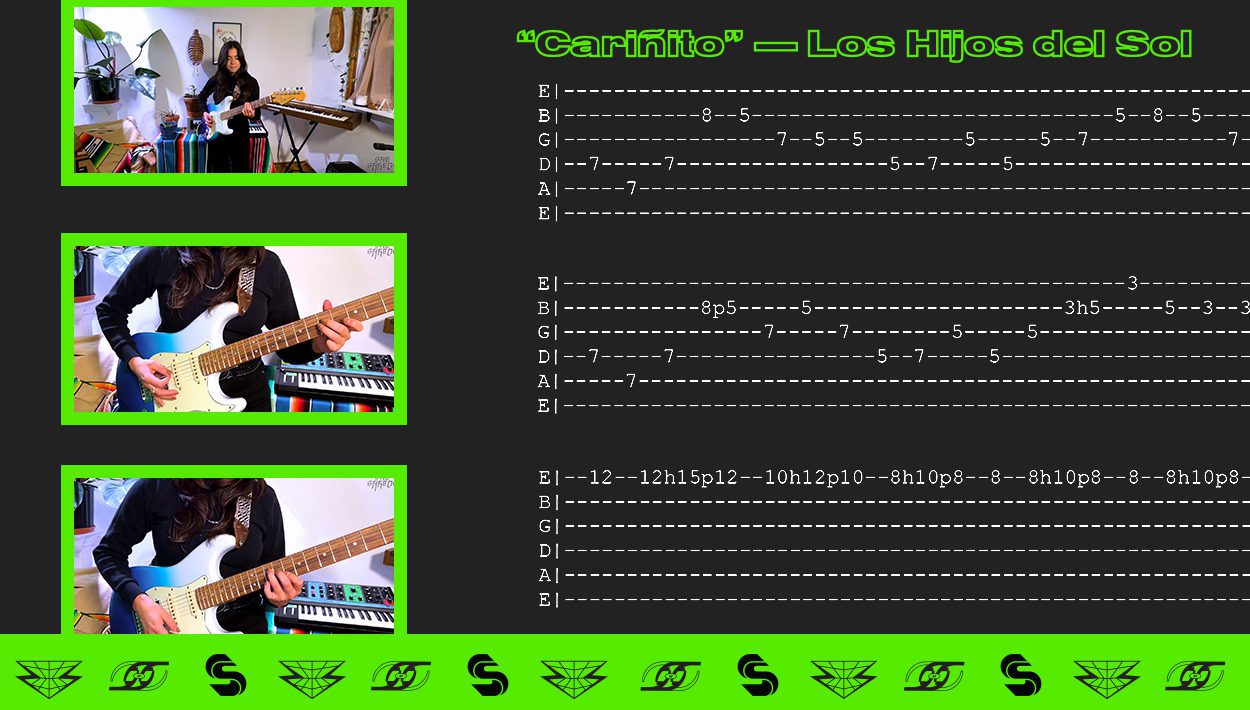
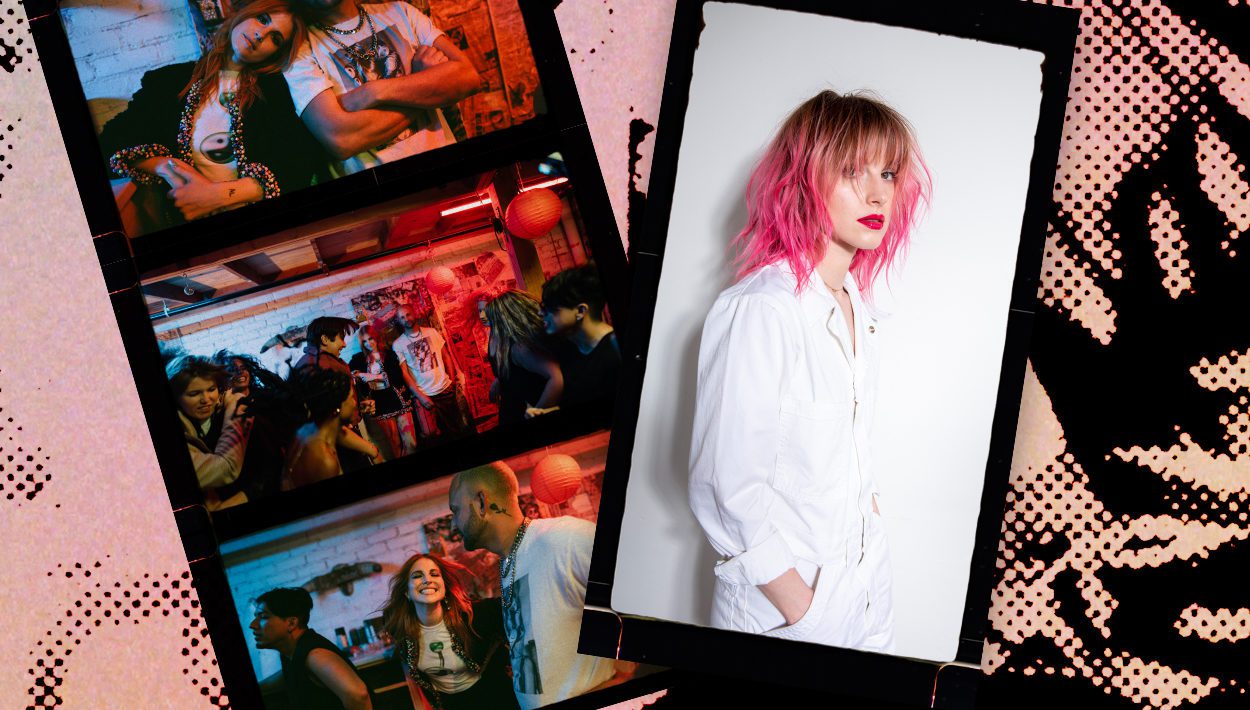
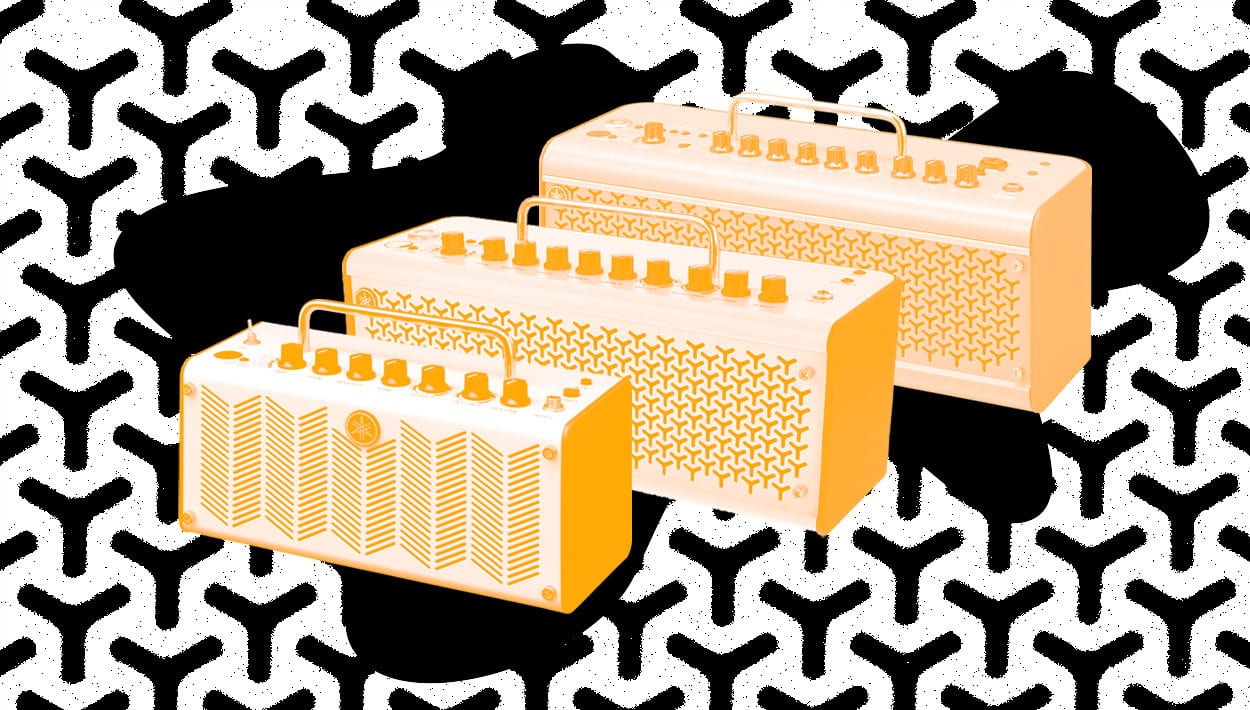
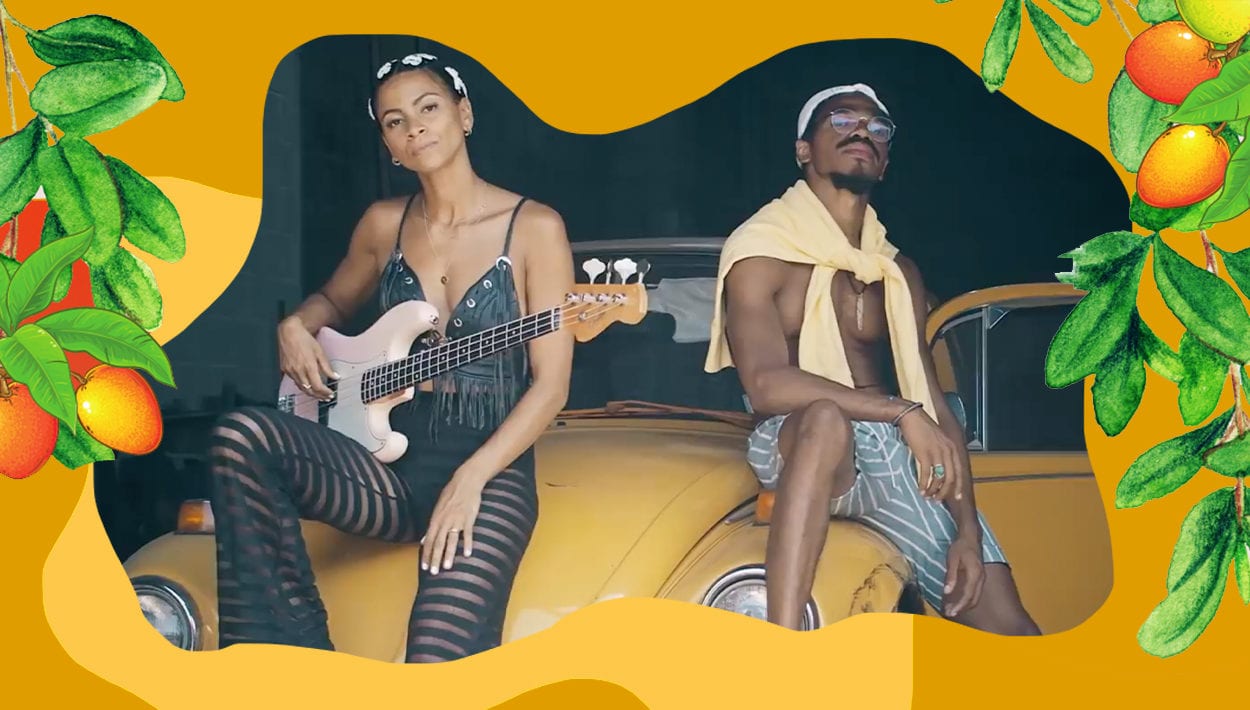
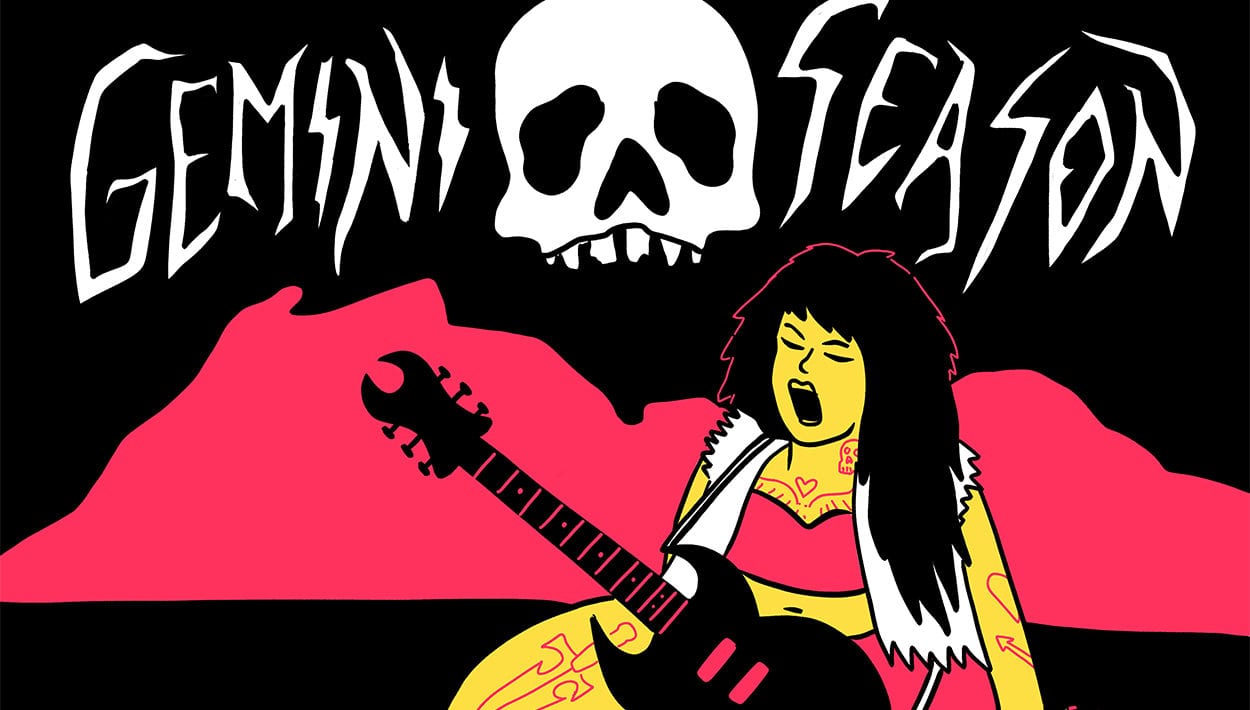
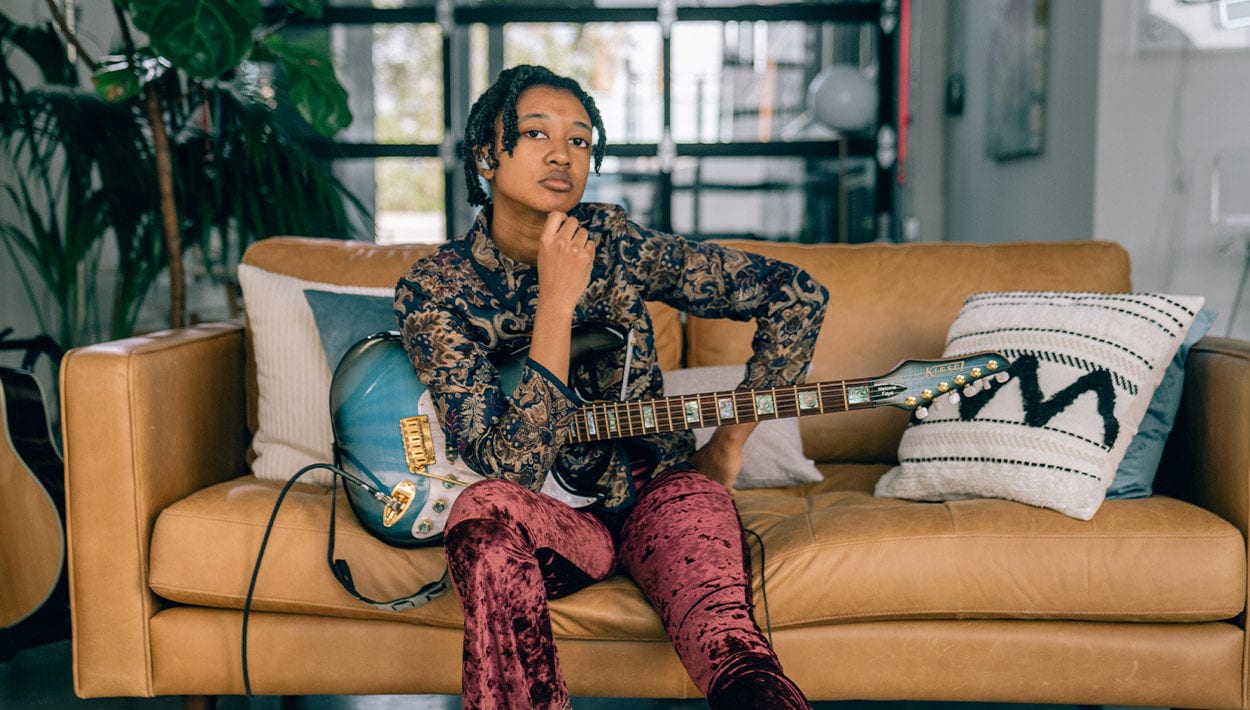
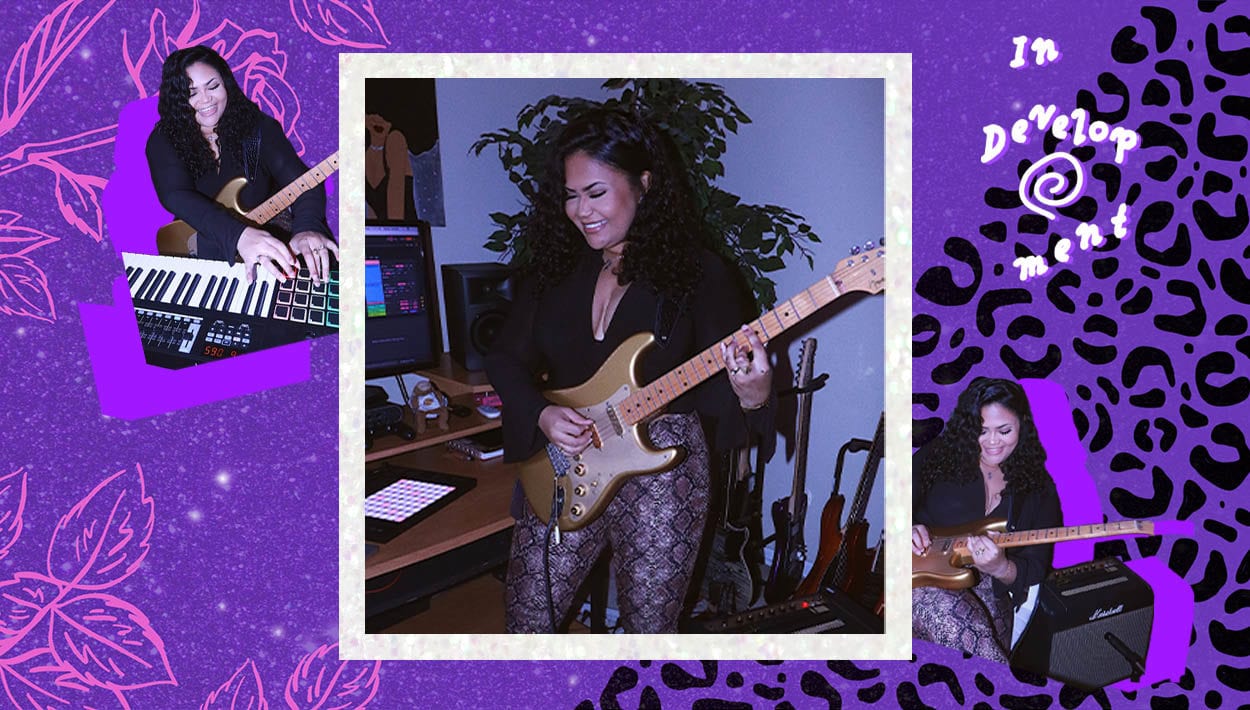
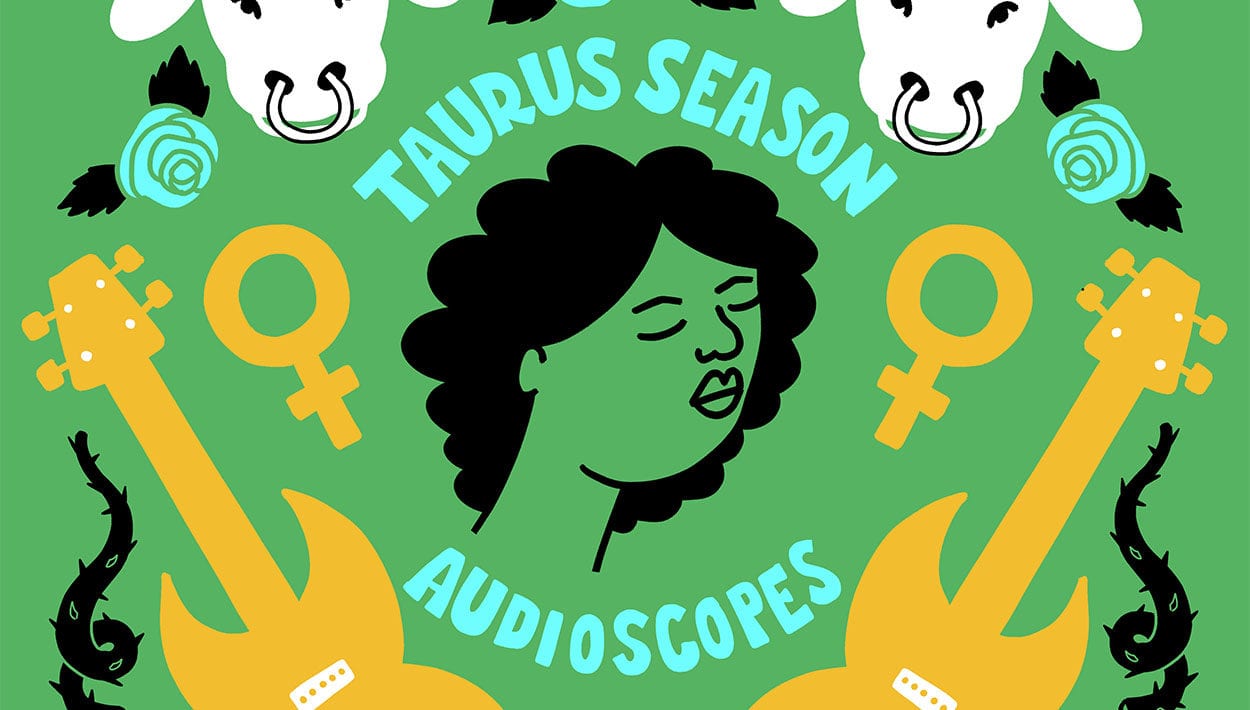


Comments
No comments yet